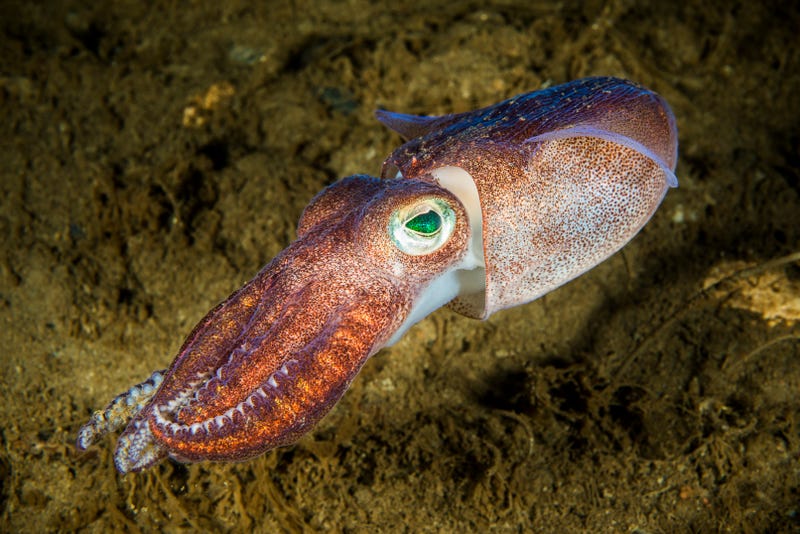
NASA launched dozens of baby Hawaiian bobtail squid into space for scientific research on how to further preserve Astronauts health during long space missions, the Hawaii Star-Advertiser reported Monday.
128 of the tiny animals were sent as part of SpaceX’s 22nd resupply mission, which delivered thousands of pounds of cargo to the International Space Station.
University of Florida professor Jamie Foster is the lead scientist for the experiment and she’s also the principal investigator for a NASA research program called UMAMI, which stands for Understanding of Microgravity on Animal-Microbe Interactions.
According to UMAMI’s website, the primary goal of the experiment is to understand “effects of spaceflight on the molecular and chemical interactions between beneficial microbes and their animal hosts.”
"We have found that the symbiosis of humans with their microbes is perturbed in microgravity, and Jamie has shown that is true in squid," University of Hawaii professor Margaret McFall-Ngai told the paper. “And, because it’s a simple system, she can get to the bottom of what’s going wrong."
Squid have shown to have a similar immune system to humans. By studying how the squid interact with bacteria in space, Foster told the Star-Adviser that she hopes this helps further understand some of the health problems that astronauts encounter in space.
"There are aspects of the immune system that just don’t work properly under long-duration spaceflights. If humans want to spend time on the moon or Mars, we have to solve health problems to get them there safely," she explained.
The squid were raised in the University of Hawaii Kewalo Marine Laboratory and their population is considered plentiful. They are expected to return in July.
LISTEN on the Audacy App
Sign Up and Follow Audacy
Facebook | Twitter | Instagram